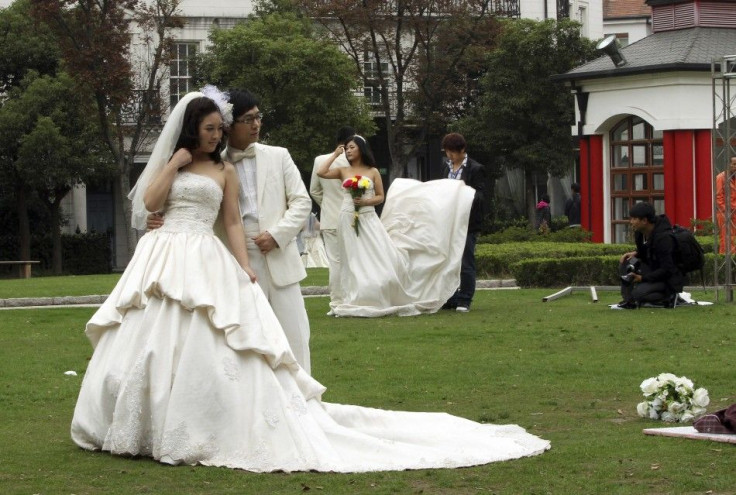China's Poor 'Bare Branch' Men: Destined for Lifelong Bachelorhood?

China’s one-child policy, the 30-year-long population control mechanism, has created several demographic phenomena unique to the nation of 1.3 billion people.
Most of these unusual demographics have been shaped by the imbalanced wealth in China and of course, the unusually skewed gender ratio due to the nation’s one-child policy. According to a report in the Global Post, Chinese social scientists are expecting the upcoming census results to reveal a gender ratio of 122 boys born for every 100 girls. In countries with no population control measures, nor sex selection exercised through abortion or infanticide, there are typically 105 to 106 boys for every 100 girls born, although females live longer.
Because of the gender imbalance, it is men who create these new demographics. There are the well-documented "princelings," the wealthy, well-connected sons of the nation’s political elite, who often become high-ranking officials themselves. There are the "little emperors," a take on the West’s only-child syndrome, where stereotypically children without siblings grow up to be selfish. In addition to being selfish, China’s little emperors are reportedly more pessimistic, less competitive and conscientious than those born before the one-child policy.
Now, according to Jiang Quanbao and Jesus Sanchez-Barricarte, authors of a report called “Bride Price in China: The Obstacle to ‘Bare Branches’ Seeking Marriage,” yet another new demographic of men can be found all over China.
According to the study, the "bare branches" bachelors are the millions of young men in rural or poverty-stricken areas of China that will likely never marry or have children, because of their inability to provide monetarily for the nation’s women, who have their pick of men due to the gender imbalance and are growing increasingly accustomed to wealth as China develops.
In what The Atlantic is calling a “reversal of hundreds of years of gender discrimination in China,” marrying-aged women are becoming increasingly rare and harder to woo without money.
The report by the Atlantic quoted Ma Nuo, a contestant on a popular dating show, “If You Are the One,” who described what the modern Chinese woman looks for in a spouse.
“[I would] rather cry in a BMW then laugh on the backseat of a bicycle,” Ma Nuo said.
Unfortunately for these poor bachelors, Ma Nuo speaks the truth for a majority of Chinese women. According to the Atlantic, 70 percent of women surveyed said financial concerns ranked above all when choosing a husband. Tingting Jin, the editor-in-chief of a Chinese wedding planning website, found that a man’s status and salary rate higher in importance than the notion of love.
As a result, women tend to gravitate to and marry little emperors or princelings. This will leave an estimated 40 to 50 million young bachelors -- roughly the population of California — living in poor provinces and rural villages unmarried.
Another contributing factor is the short window of opportunity for marriage that traditional Chinese culture allows for. Typically, unmarried men over the age of 30 are considered to be social losers, causing many of them to act out and more likely to develop dependence on drinking and other bad habits.
The Institute of Social and Family Medicine at Zhejiang University interviewed some of these single men who found themselves lonely and marginalized by their villages for being unable to find wives.
“I get very lonely,” one 36-year-old migrant worker said to a researcher. “No one cares about me, and I have no one to speak to when I go home. I sometimes get so drunk that I vomit. When that happens, there is no one to clean up after me.”
But there are still those hopeful people looking for "true love," which has been aided by the popularization of online dating.
Tea Leaf Nation, a news blog that focuses on China’s social media trends, interviewed Joe Xu, the producer of a documentary called "The People’s Republic of Love," who says looking for love online could benefit bare branch men. Single men who live in villages where the gender ratio is so off that there isn't a single unmarried woman, can instead try their luck online, opening them up to a pool of women that they previously never would have known existed.
“The development of mobile apps in conjunction with the Internet has allowed people to meet each other anywhere at any time. Mobile dating has effectively merged online and offline dating elements to give people more opportunities to meet — and the odds of finding someone is then much higher,” Xu said.
As China’s news, trends and politics start to go digital, many Chinese men hope to find a love connection over an Internet connection.
© Copyright IBTimes 2024. All rights reserved.












